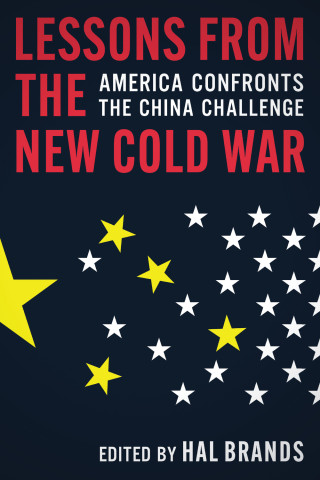
Reviews
A fine and much recommended read for international studies collections.
A very insightful book... Litwak is to be congratulated for his impressive contribution.
Nothing has bedeviled U.S. foreign policy more since the end of the Cold War than how to deal with a collection of despotic, hostile, and dangerous middle-tier states, such as Iran and North Korea. In this lucid and thoughtful book, Litwak compares the performances of the George W. Bush and Obama administrations in handling such foes.
Logically organized, conceptually clear, analytically robust and practically useful... Outlier States is destined to become the reference of choice for U.S. officials seeking a clear exposition of the policy dilemmas and options for bringing outlier states in from the cold.
This is an authoritative, substantive, and well-written account that will be essential reading for students, scholars, and the attentive public who wish to understand the problems of outlier states and the policy changes they represent.
The key question it asks—how to integrate, or reintegrate countries that have separated themselves from the international community—is one that will be at the very top of the foreign policy agenda for the next administration. This is an extremely important work of political science.
Drawing on historical and theoretical analysis, Robert Litwak makes a timely and illuminating case for nuanced American policies toward Iran and North Korea, two of the most challenging countries in American foreign policy today. This book can serve as a strong foundation for policy debates on American diplomacy and strategy in the years ahead. Outlier States is policy-relevant scholarship at its finest.
It is a masterly study that contributes significantly to our knowledge of ‘outlier’ states and how best to deal with them. I believe that it will become an essential work in the field of strategic studies.
Book Details
Abbreviations
Preface
Acknowledgments
Introduction
1. Outlier States and International Society
Policy Shifts in Washington
Power Shifts in the International System
The Anarchical Society Revisited
2. Pathways
Abbreviations
Preface
Acknowledgments
Introduction
1. Outlier States and International Society
Policy Shifts in Washington
Power Shifts in the International System
The Anarchical Society Revisited
2. Pathways into the "Community of Nations"
The Assimilation of a Defeated Great Power
The Evolution of Revolutionary States
Regime Change from Without
Regime Change from Within
Assessment and Implications
3. Strategies to Contain, Engage, or Change
Sources of Outlier Conduct
Iraq: "Rogue" Rollback
Libya: U.S.-Assisted Regime Change
Assessment and Implications
4. Nuclear Outliers
Proliferation Dynamics and U.S. Policy
North Korea: A Failed State with Nuclear Weapons
Iran: A Nation or a Cause?
Living with Nuclear Outliers
Conclusion
Appendix: Excerpts from National Security Strategy Documents of September 2002 and May 2010
Notes
Index





